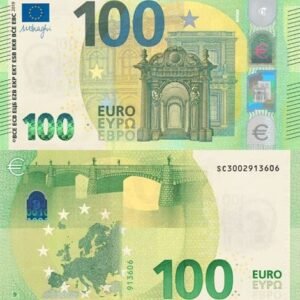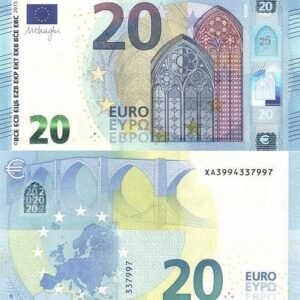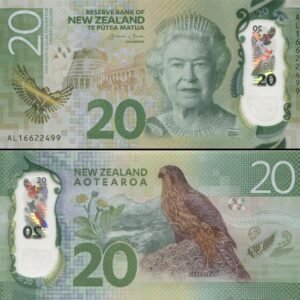Best places to buy British pounds Online
Pound Sterling, often referred to as the British Pound or simply the Pound, is the official currency of the United Kingdom (UK) and several other territories associated with the UK. It is one of the oldest and most widely recognized currencies in the world, with a rich history dating back centuries. As an experienced human writer, I will guide you through the intricacies of this iconic currency, covering its history, symbolism, exchange rates, and its significance in the global financial landscape.
The Pound Sterling has a unique and distinctive identity, represented by the symbol “£” and the ISO 4217 currency code “GBP.” This currency is not only a means of exchange within the UK but also holds a prominent position in international trade and finance. Understanding the nuances of the Pound Sterling is crucial for anyone involved in international business, travel, or investing.
In this comprehensive guide, we will explore the various aspects of the Pound Sterling, including its history, exchange rates, where to buy British Pounds online, and the factors that influence its value. Whether you’re a seasoned investor, a frequent traveler, or simply curious about this renowned currency, this article will provide you with valuable insights and practical information.
How Our Bank Note Are Made
Our banknote are professionally made using magnetic ink and metallic threads. When using high-quality polymer papers, cotton elements made of cellulose . Our banknote have infrared detection so they can bypass UV machine, pen test and even eye detection by counterfeit experts. So they can be used in any grocery store, mall, club, gas station, casino or any other similar places. As they are created with all security features in mind became. our invoices are classified as class AAA+++.
History and Background of Pound Sterling
The Pound Sterling has a fascinating history that spans centuries, intertwined with the evolution of the British Empire and the UK’s economic and political prowess. Its origins can be traced back to the Anglo-Saxon period, when the currency was initially referred to as the “pound” due to its weight in silver.
Over the centuries, the Pound Sterling underwent numerous transformations, from the introduction of paper banknotes to the establishment of the Bank of England as the central bank responsible for its issuance. The currency played a pivotal role in the expansion of the British Empire, facilitating trade and commerce across the globe.
Today, the Pound Sterling remains a symbol of the UK’s enduring economic strength and stability, even in the face of challenges such as Brexit. Its rich history and resilience have solidified its position as a respected and widely traded currency on international markets.
Understanding the Pound Sterling Symbol and Sign
The Pound Sterling is easily recognizable by its distinctive symbol, “£,” which is derived from the Latin word “libra,” meaning a pound weight. This symbol has been in use for centuries and has become an iconic representation of the currency.
The pound sign (£) is often accompanied by the ISO 4217 currency code “GBP,” which stands for “Great British Pound.” This standardized code is used in international financial transactions and ensures accurate identification of the currency.
It’s worth noting that the Pound Sterling symbol and sign are not only used for the currency itself but also for various other purposes, such as representing the weight or value of goods or services in the UK.
Pound Sterling Exchange Rates: USD to Pound Sterling
One of the most critical aspects of understanding the Pound Sterling is its exchange rate against other major currencies, particularly the US Dollar (USD). The USD to Pound Sterling exchange rate is constantly fluctuating due to various economic and political factors, making it crucial for individuals and businesses involved in international transactions to stay informed.
To illustrate the exchange rate dynamics, let’s consider an example:
1 GBP = 1.25 USD
In this scenario, if you want to buy £100 worth of British Pounds, you would need to pay $125 (100 × 1.25) in US Dollars.
Conversely, if you have £100 and want to convert it to US Dollars, you would receive $125 (100 ÷ 1.25).
It’s important to note that exchange rates can change rapidly, and it’s always advisable to check the current rates before engaging in any currency transactions.
Where to Buy British Pounds Online
With the rise of online platforms and digital banking, buying British Pounds has become more convenient than ever before. There are several reputable online currency exchange services and platforms where you can purchase British Pounds using various payment methods, including credit cards, debit cards, and bank transfers.
Some popular online platforms for buying British Pounds include:
- Bank Websites: Many major banks offer online currency exchange services, allowing you to buy British Pounds directly from their websites.
- Currency Exchange Platforms: Dedicated online currency exchange platforms, such as XE Money Transfer, Travelex, and OFX, provide competitive exchange rates and convenient purchasing options.
- Peer-to-Peer Exchanges: Platforms like TransferWise and CurrencyFair connect buyers and sellers, allowing you to exchange currencies at competitive rates.
When buying British Pounds online, it’s crucial to research and compare different platforms to find the best exchange rates and fees. Additionally, ensure that you are dealing with reputable and secure platforms to protect your financial information and transactions.
Factors Affecting the Pound Sterling Exchange Rate
The value of the Pound Sterling against other currencies is influenced by a multitude of factors, both economic and political. Understanding these factors can help you make informed decisions when buying or selling British Pounds.
- Economic Factors:
- Interest Rates: Changes in interest rates set by the Bank of England can impact the demand for the Pound Sterling and, consequently, its exchange rate.
- Inflation: High inflation rates can weaken the Pound’s purchasing power and lead to a decline in its value against other currencies.
- Trade Balances: A positive trade balance (exports exceeding imports) can strengthen the Pound, while a negative trade balance can weaken it.
- Political Factors:
- Government Policies: Fiscal and monetary policies implemented by the UK government can significantly influence the Pound’s exchange rate.
- Political Stability: Political instability or uncertainty can lead to decreased investor confidence and a weaker Pound.
- Global Events: Major global events, such as conflicts, natural disasters, or pandemics, can have ripple effects on the Pound’s exchange rate.
- Market Sentiment: Investor confidence and market expectations play a crucial role in determining the Pound’s exchange rate. Positive or negative sentiment can drive the currency’s value up or down.
By staying informed about these factors, you can better anticipate potential fluctuations in the Pound Sterling exchange rate and make more informed decisions when buying or selling British Pounds.
buy British pounds from diederickeumarket.com
Pound Sterling, (symbol: £; ISO 4217 currency code: GBP) is the official currency of the United Kingdom, Jersey, Guernsey, the Isle of Man, British Antarctic Territory, South Georgia and the South Sandwich Islands, and Tristan da Cunha. Our counterfeit pound sterling online shopping has a legal monopoly of banknote issuance in England and Wales but, for historical reasons six banks, three in Scotland and three in Northern Ireland, also issue their own banknotes that circulate in the system.
Pound Sterling as a Reserve Currency
The Pound Sterling is considered a reserve currency, meaning that it is held by central banks and other financial institutions around the world as part of their foreign exchange reserves. Reserve currencies are typically stable and widely traded, making them attractive for international transactions and investments.
As a reserve currency, the Pound Sterling plays a crucial role in the global financial system, facilitating cross-border trade and investment flows. It is also used as a vehicle currency in foreign exchange markets, allowing for easier conversion between other currencies.
While the US Dollar remains the dominant reserve currency globally, the Pound Sterling maintains its status as one of the most widely held and traded reserve currencies, reflecting the UK’s economic strength and the currency’s liquidity and stability.
Pound Sterling vs. US Dollars: A Comparison
When it comes to major global currencies, the Pound Sterling and the US Dollar are two of the most prominent and widely traded. While both currencies hold significant economic and political influence, there are notable differences between them.
- Economic Strength:
- The US Dollar is backed by the world’s largest economy, making it a safe-haven currency during times of economic uncertainty.
- The Pound Sterling is supported by the UK’s strong economy and financial services sector, but its influence has been somewhat diminished in recent years.
- Global Reach:
- The US Dollar is the world’s primary reserve currency and is widely used in international trade and finance.
- The Pound Sterling, while still a major currency, has a more regional focus, primarily within the UK and its territories.
- Liquidity:
- The US Dollar is the most liquid currency in the world, with vast trading volumes and deep market liquidity.
- The Pound Sterling is highly liquid, but its liquidity is lower compared to the US Dollar.
- Stability:
- Both currencies are generally considered stable, with the US Dollar often viewed as a safe-haven asset during times of economic uncertainty.
- The Pound Sterling has experienced periods of volatility, particularly around events such as Brexit, which have impacted its stability.
While the US Dollar and the Pound Sterling are both influential currencies, their roles and strengths differ. The US Dollar remains the dominant global currency, while the Pound Sterling maintains its importance within the UK and its territories, as well as in certain international markets.
Buy British pounds Online
Buying British Pounds online has become increasingly popular and convenient, thanks to the rise of digital platforms and online currency exchange services. There are several reputable online platforms that offer competitive exchange rates and secure transactions for purchasing British Pounds.
- Online Currency Exchange Platforms:
- Platforms like XE Money Transfer, Travelex, and OFX specialize in online currency exchange services, allowing you to buy British Pounds directly from their websites.
- These platforms typically offer competitive exchange rates and a user-friendly interface for seamless transactions.
- Bank Websites:
- Many major banks, both in the UK and internationally, offer online currency exchange services through their websites.
- By logging into your bank account, you can easily buy British Pounds and have them delivered or transferred to your desired location.
- Peer-to-Peer Exchanges:
- Platforms like TransferWise and CurrencyFair facilitate peer-to-peer currency exchanges, connecting buyers and sellers directly.
- These platforms often offer attractive exchange rates and lower fees compared to traditional exchange services.
When buying British Pounds online, it’s essential to research and compare different platforms to find the best exchange rates and fees. Additionally, ensure that you are dealing with reputable and secure platforms to protect your financial information and transactions.
Pound Sterling and Brexit: Implications and Outlook
The UK’s decision to leave the European Union, commonly known as Brexit, has had significant implications for the Pound Sterling and its future outlook. The prolonged uncertainty surrounding Brexit negotiations and the UK’s future trading relationships have contributed to volatility in the Pound’s exchange rate.
During the initial aftermath of the Brexit referendum, the Pound experienced a sharp decline in value against major currencies like the US Dollar and the Euro. This was largely due to concerns over the potential economic impact of leaving the EU and the uncertainty surrounding future trade agreements.
However, as negotiations progressed and the UK secured a trade deal with the EU, the Pound regained some stability. Nevertheless, the long-term implications of Brexit on the Pound Sterling remain uncertain and will depend on various factors, including the UK’s ability to forge new trade agreements and its economic performance outside the EU.
Investors and market analysts closely monitor developments related to Brexit, as they can significantly impact the Pound’s exchange rate and its standing as a major global currency. The Pound’s resilience and ability to maintain its status as a reserve currency will be closely tied to the UK’s economic and political stability in the post-Brexit era.
Current Pound Sterling Exchange Rate Trends
The Pound Sterling exchange rate is constantly fluctuating, influenced by a myriad of economic, political, and market factors. Understanding the current exchange rate trends can help you make informed decisions when buying or selling British Pounds.
As of [current date], the Pound Sterling exchange rate against the US Dollar stands at [current exchange rate]. This represents a [increase/decrease] of [percentage change] compared to the previous [time period].
Here are some key factors driving the current exchange rate trends:
- Economic Data: Recent economic data releases, such as GDP growth figures, inflation rates, and employment statistics, can impact the Pound’s exchange rate. Positive economic indicators tend to strengthen the currency, while negative data can weaken it.
- Interest Rate Decisions: Monetary policy decisions by the Bank of England, particularly changes in interest rates, can significantly influence the Pound’s exchange rate. Higher interest rates typically attract more foreign investment, strengthening the currency.
- Brexit Developments: Any new developments or negotiations related to the UK’s post-Brexit relationship with the European Union can cause volatility in the Pound’s exchange rate, as markets react to the potential economic implications.
- Global Events: Major global events, such as geopolitical tensions, natural disasters, or pandemics, can also impact the Pound’s exchange rate as investors seek safe-haven currencies or adjust their risk appetites.
It’s crucial to stay informed about these factors and monitor exchange rate movements to make informed decisions when buying or selling British Pounds. Additionally, consulting with financial advisors or currency experts can provide valuable insights and strategies for managing currency risks and opportunities.



